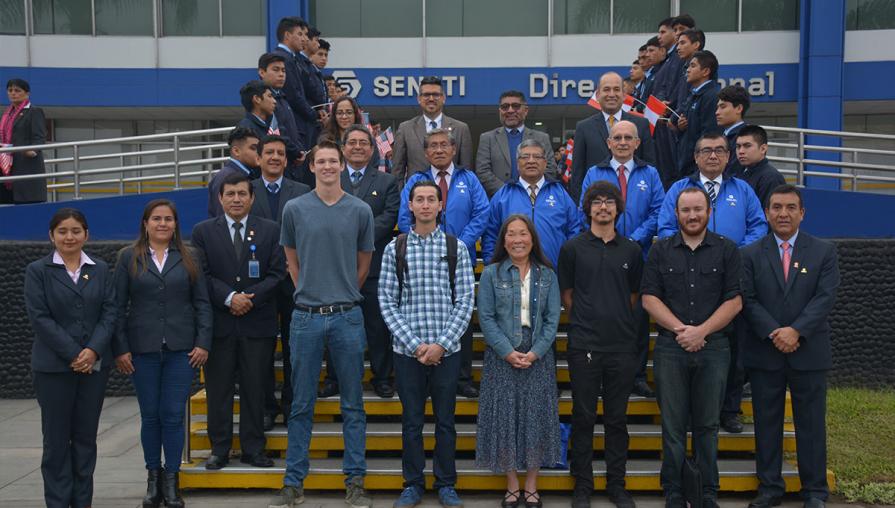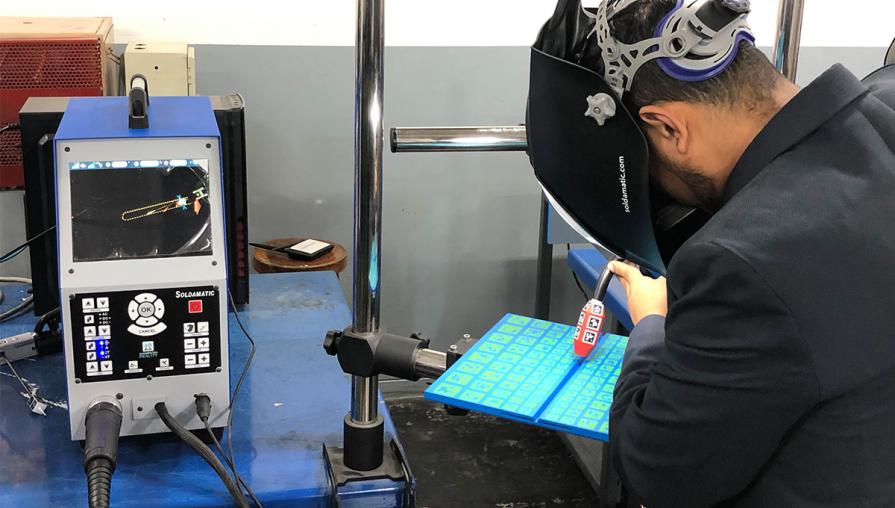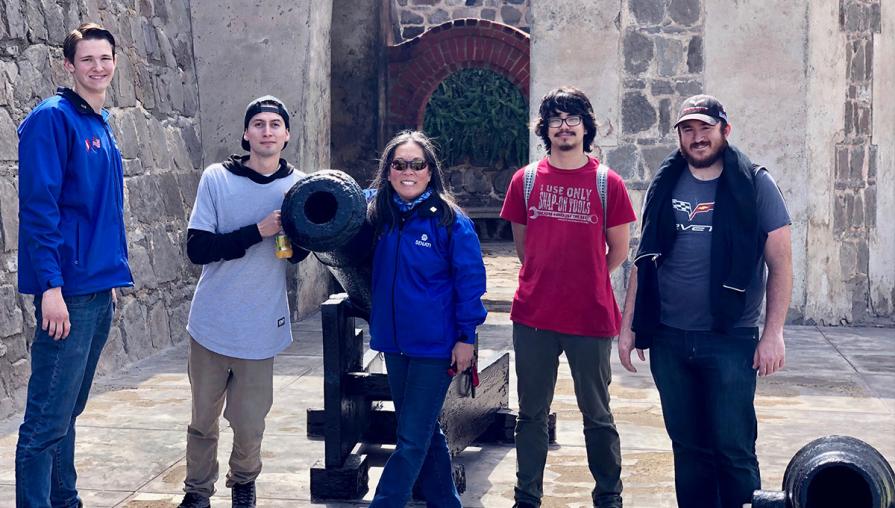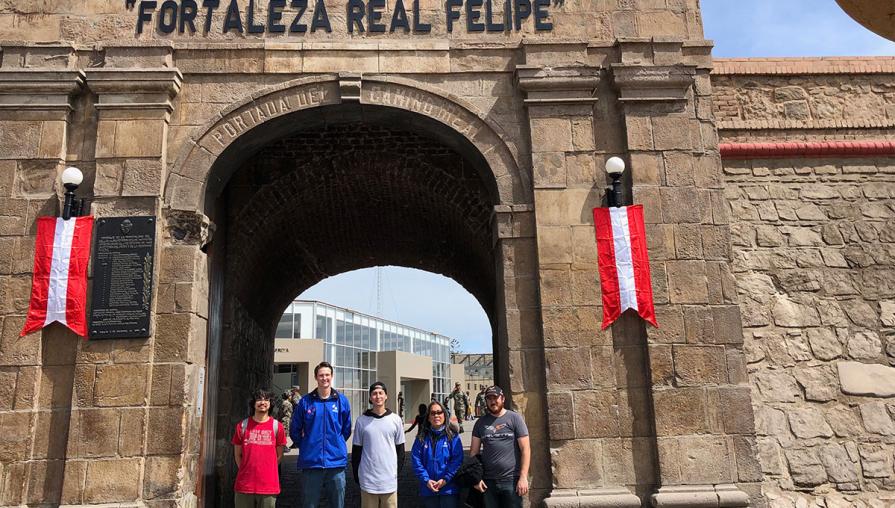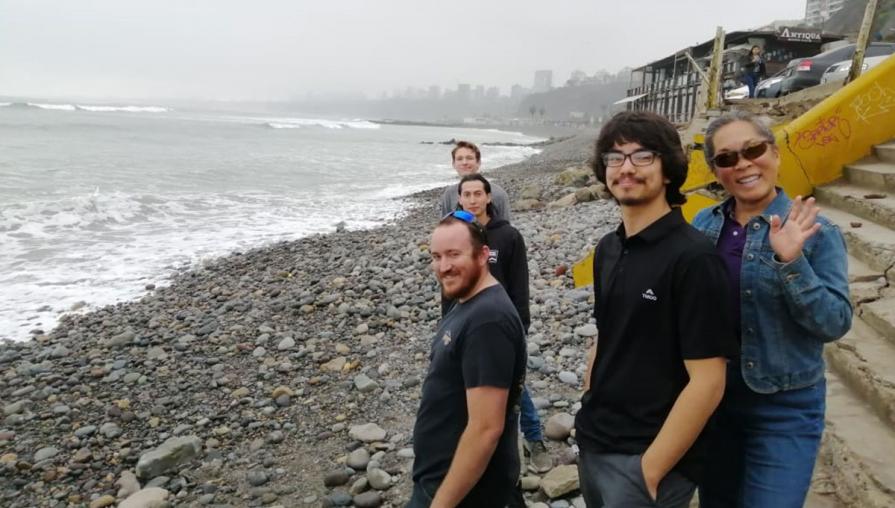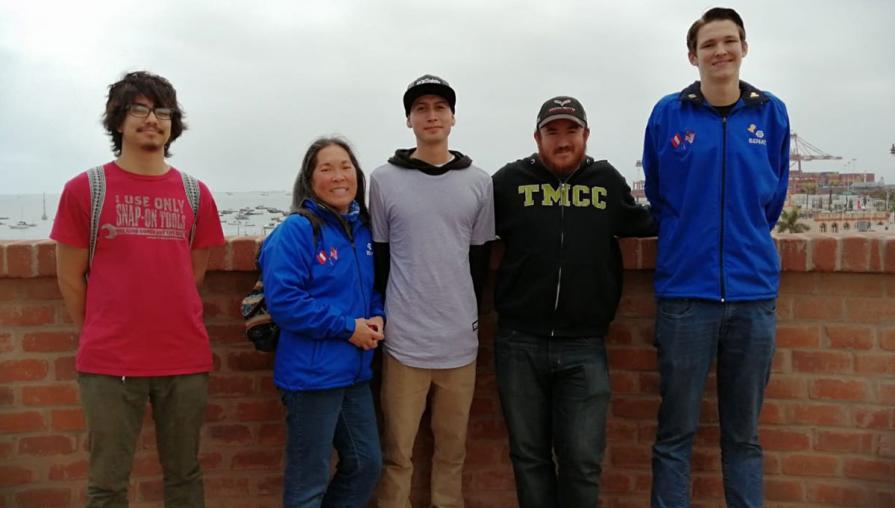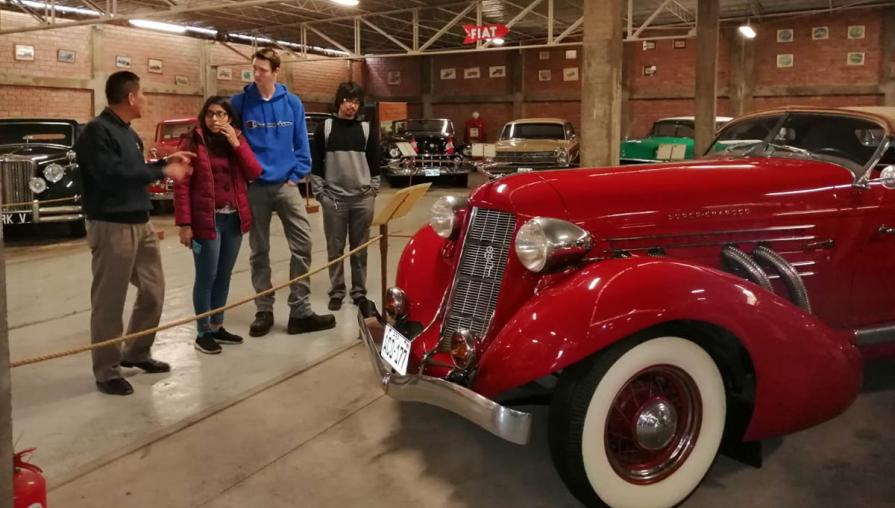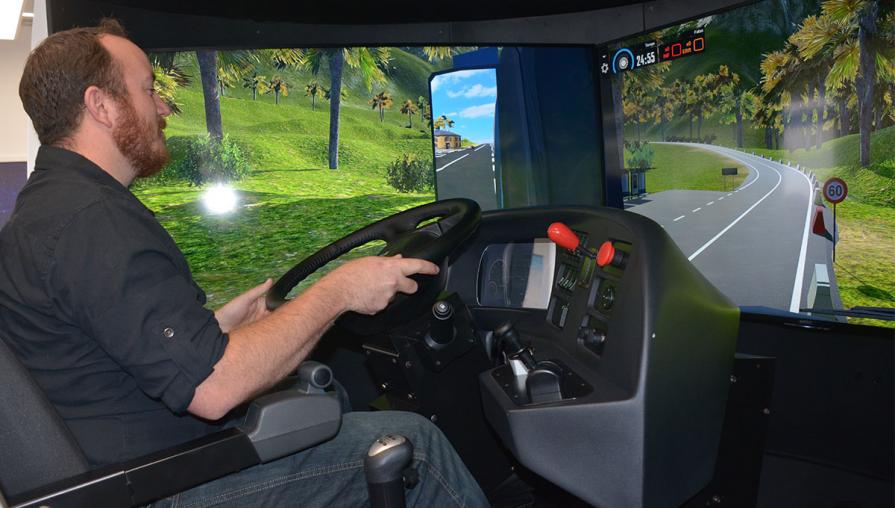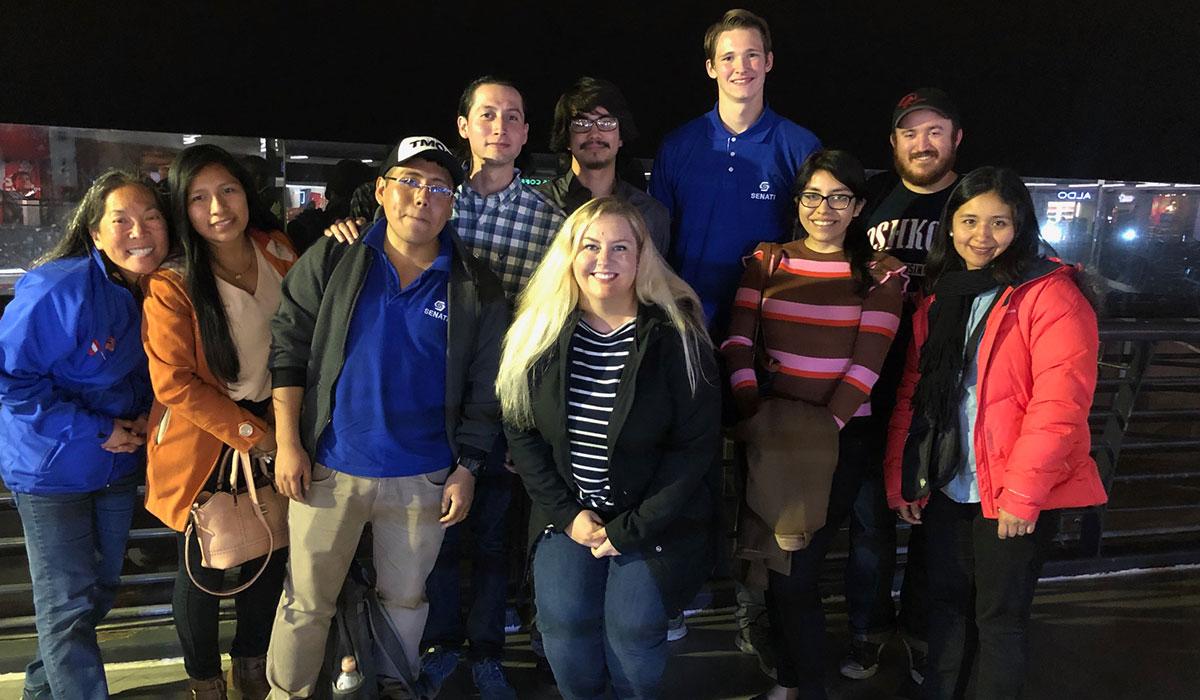
This summer, TMCC students Jack Sato, Marco Guillen, Steven Wendling, and Mary Savoy along with Automotive Instructor Wyatt Ziebell participated in a three-week cultural exchange to the SENATI Institute, located in Lima, Peru. The purpose of the trip was to continue an on-going discussion—and an exchange of ideas—on how to best educate students in the technical sciences, particularly in automotive and manufacturing technologies.
The students and staff who went to Peru were mostly not Spanish-speakers (although Guillen does speak Spanish, but a different dialect from the Spanish that is spoken in Peru) and the language barrier was one of the many challenges they faced in their three-week exchange that included plenty of time in SENATI classrooms along with a few adventures. Each day, the group arrived on campus at 9 a.m. where they would attend class until 3 p.m.
Academic Exchange
The students attended classes at the SENATI Institute that aligned with what they have been studying at TMCC, which included diesel engines and electrical systems in cars. There were, however, also a few surprises which included a driving simulator for semi-trucks, which Ziebell and Sato tried, with varying degrees of success.
Driving simulators aside, the students who participated in the exchange were extremely impressed by the quality of instruction at SENATI and the differences in resources and pedagogy from what exists at TMCC. Much of the equipment at the SENATI Institute was supplied directly by automobile manufacturers, which enabled the students to gain real hands-on experience. “The trainers, the actual set up, the engine stands—they had everything standing and working. It was all accessible and easy to learn from,” said Wendling.
The TMCC group was especially impressed with an electrical board that was purpose-built from Hyundai for the automotive program. They also appreciated an instructor in the department, named Pablo, who spoke slowly and created detailed drawings on the whiteboard that made some students wonder if he had a background in Fine Arts. The differences in programming also impressed the group: “They do a textile program which you don’t normally see in a technical school,” said Ziebell.
Cultural Exchange
After 3 p.m., the TMCC group experienced the culture of Peru outside of the classroom. They toured an automobile museum, a milk factory, museums, the Fortaleza Real Felipe and other historical sites. “[The automobile museum] had every car my dad, my uncle and I grew up with,” said Savoy. “It was quite the collection.”
“It was a taste of Hot August Nights before Hot August Nights,” said Guillen—an experience Savoy would call “Cool July Afternoons.”
A milk factory, locally owned and operated, was the next stop on the cultural tour. “It was huge,” said Wendling. “We toured around the machines. [It was amazing to see] everything that goes into [producing milk.] I never thought at all that was how the process worked.”
“It was cool, even though it didn’t really apply to automotive, but it was Industry 4.0,” said Sato. “There was a lot of automation in that factory.”
The group also toured the Inca Market, a small commercial district filled with hundreds of tiny and locally-owned shops. “We would go to the Inca Market nearly every day,” said Ziebell. “We would walk the whole way. It was nice, and we kept going back… We [went because we] had to buy little presents for family and friends back home.”
About the SENATI Exchange
“The future careers of our students are global ones,” said TMCC Director of Academic Advisement, Transfer Center and International Student Services Dr. Natalie Brown. “ The more we are able to connect our students to opportunities to experience other cultures, languages, methods of learning, and educational environments... the more competitive they will be in this global job market.”
The TMCC-SENATI International Student Exchange Program is funded by the Innovation Fund grant, a partnership with the U.S. Department of State, Embassy of Peru, Partners of the Americas, and NAFSA: Association of International Educators. The Innovation Fund grants created 13 new higher education partnerships between universities and colleges in the United States and institutions in Peru. TMCC is the only two-year institution selected for the grant program and is the only college from the State of Nevada. Grants were funded by the U.S. Department of State, SEMPRA Energy and CAF: the Development Bank of Latin America.
“I hope our students gained knowledge, both academically and culturally, and gained a global awareness that they will take with them throughout their lives,” said Brown. “I am so grateful for the grant and the on-going support from President Karin Hilgersom and Vice President Estela Gutierrez for making a program of this kind happen at TMCC.”
Reflections on the Experience
The cultural exchange impacted TMCC students and staff differently; although all of them noticed that cars in Peru have manual transmissions (a detail that escapes no automotive student) and that the driving norms are not quite what they are in Reno, deeper explorations about the differences in human lives—or more importantly, the ways we are the same—began to surface in the three weeks this group spent in Peru.
“It was really nice having that mix of things you’ve already learned and you have the opportunity to learn how they are doing it down there,” said Sato. “And then there are [so many things ] you have no idea about. [This experience helped us to start] learning about all those things.” Sato agreed with others in the group that traveling and exploring new ways of learning about a topic is infinitely beneficial.
“The TMCC and SENATI partnership was developed to prepare a foundation for building a student exchange program that will ultimately progress to study abroad opportunities for our students to increase student mobility, both in Reno as well as in Lima,” said Brown. “Our next steps are to gather data on the delivery and outcomes, of both the TMCC group that went to Peru this past July as well as the SENATI group that came to TMCC last October, to develop an on-going exchange program with both institutions.”
There’s no question whether or not the students who participated in this exchange are interested in going again. When asked, Guillen admits his bags are already packed: “I'm ready to go again,” he said.
For more information about programs offered by Applied Technologies at TMCC, contact the department at 775-856-5300.







